Hello darkness, my old friend

APRIL 2023 IOL
HEALTH
- Unknown

“It’s better to light a candle than curse the dark”
• The impact of load shedding on mental health
• How load shedding is leading to unhealthy eating
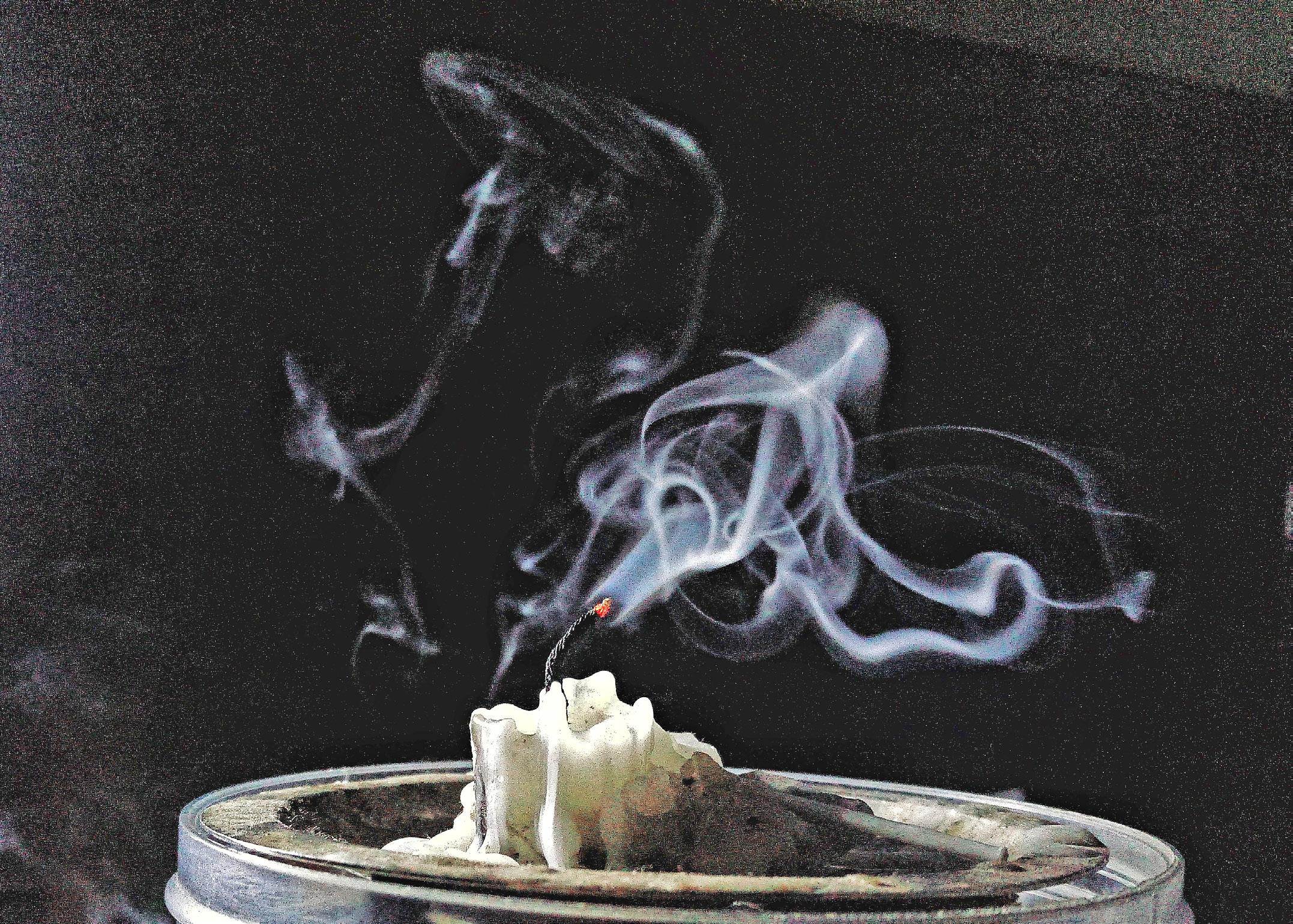
• Patients on lifesaving equipment are at risk
• Biology of a panic attack
• Best brain foods after a bad night’s sleep
• What the budget speech means for mental health
• Positive effects of hugging
• Eat healthy when out
CONTENTS IOL
CONTACT US
PUBLISHER
Vasantha Angamuthu vasantha@africannewsagency.com
ACTING EXECUTIVE LIFESTYLE
EDITOR
Debashine Thangevelo debashine.thangevelo@inl.co.za
EDITORS
Marchelle Abrahams marchelle.abrahams@inl.co.za
Vuyile Madwantsi vuyile.madwantsi@inl.co.za
DESIGN
Juanita Minshull juanita.minshull@inl.co.za
PRODUCTION EDITOR
Renata Ford renata.ford@inl.co.za
BUSINESS DEVELOPMENT
Keshni Odayan keshni.odayan@inl.co.za
SALES
Charl Reineke charl.reineke@inl.co.za
ENQUIRIES info@anapublishing.com
Cover Picture: Joshua Fuller/Unsplash
DON KAVEEN Unsplash
Editors’ notes
IN
MANY households across the country, load shedding has become a regular part of our existence.
And yet every time the lights go out, we are taken by surprise. Is supper cooked? Are the devices charged? And my favourite, “Are you sure it’s load shedding? Maybe the electricity units ran out.”
While researching stories for our latest Health digital magazine, we realised the effects of power outages reach far and wide.
Many hospitals are left without power which could lead to dire consequences. And then there’s our collective psyche.
An in-depth study by the South African Depression and Anxiety Group has shown that South Africans’ mental health is taking strain, and according to reports, things could get worse.
We might not have the answers, but we’re hoping our latest edition of the magazine will provide you with the well-being tools to deal with load shedding.
Happy reading!
DEAR IOL Lifestyle readers,
The impact of load shedding on mental health in South Africa is a growing concern that cannot be ignored.
Load shedding not only disrupts our daily routines, but also affects our physical and emotional well-being, leading to anxiety, depression, sleep disturbances and other mental health issues.
In this issue, we bring you insights from mental health experts, who share the effects of load shedding on our mental and emotional well-being. We explore coping mechanisms, professional advice and practical strategies to mitigate the effects of load shedding on our mental health.
We believe that by raising awareness and providing resources on the topic, we can empower our readers to take better care of their mental health during times of power outages.
Remember, your mental health is just as important as your physical health. We hope this issue inspires you to prioritise self-care and seek help if you need it.
Stay safe and take care!
Marchelle Vuyile
When days are dark...
The South African Depression and Anxiety Group looks at how load shedding is affecting mental health Vuyile Madwantsi
SOUTH Africa has seen daily restrictions on electricity supply, with these expected to last until 2027.
THE South African Depression and Anxiety Group (Sadag) surveyed South Africans to determine how load shedding (LS) is affecting their mental health.

We were joined by senior researcher at the University of Johannesburg, Dr Bronwyn Dworzanowski-Venter, and clinical psychologist Sikander Kalla to discuss the lived realities and potential solutions in light of the rise in mental health issues related to LS.
Why is it important that such surveys are conducted in the mental health space
since government and Eskom announced the load shedding forecast?
LS has been observed in South Africa for a while but has come to define who we are as a nation. South Africa has seen daily restrictions on electricity supply, and these are expected to last until 2027.
Research has demonstrated that isolation is reaching a height as a result of the pressure of financial stress, work pressures, and high levels of self-reported depression and anxiety connected to load shedding. These factors together have created a new set of
problems.
In a conversation, Dr Bronwyn Dworzanowski-Venter notes that many respondents to a Sadag survey – up to 4 out of 10 –reported feeling depressed. Six out of 10 respondents claim LS makes them anxious.
Another element that emerged was isolation: when the lights go out, people in households scatter, and everyone is separated instead of gathering together.
“This is critical to Sadag in the sense that it gives us a gauge of how we can tailor its offerings in terms of supporting the public,”
| PIXABAY
says Dworzanowski-Venter.
LS makes our days miserable, it’s a mission to get up and complete tasks without power, and whether we like it or not, it sets the tone for the day. Because we occasionally fail to complete important tasks due to power outages, it takes away from our family time, our ability to navigate our lives, the time we spend at work, and our ability to connect and quite frankly, it’s costly.
As a society, we tend to think we should know how to incorporate LS into our lives in terms of navigating and controlling the emotional turmoil we experience, without realising the impact it has on our mental health.
In response to the question “What challenged you in terms of load shedding? what was tough on you?”
“We don’t function within a vacuum,” said Kalla. He goes on to say that we are subjected to a myriad of elements that affect our mental health, particularly coming out of the pandemic, as well as the erratic nature of the load-shedding schedule.
“The one thing that really stands out during this time is uncertainty transcends into routine and structure in spaces of job insecurities, fears in academic performances and cost of living.”
Kalla adds that if you start to unpack mental health pathologies, such as anxiety or depression, one important criterion is always whether they create clinically substantial impairment of one’s functioning in the academic, social, familial, or work environments.
All of those are affected by LS, and evidence has shown that during power outages, we begin to feel increasingly isolated from others on a social level.

What exactly is LS doing to our mental health?
According to Kalla, we are already isolated and quite anxious as it is, coming out of the Covid-19 pandemic.
“Moreover, from a cognitive perspective, there is a strong sense of cynicism because we have been dealing with blow after blow, and it has got to the point where people are asking for relief because it has become a bit much.”
Dworzanowski-Venter echoes her colleague’s sentiments, saying that LS has been exhausting for people, putting pressure on their resources.
“A large number of respondents found the survey to be therapeutic in that it allowed them to express their frustrations and receive validation from others rather than screaming into nothingness.”
How can you help improve your mental health during this time?
Dworzanowski-Venter says there is a real unsustained connection between how someone is feeling on the mental health front, and how they’re feeling on the financial and social front.
“According to research, the issues we are experiencing have a material, relational and
respondents said that load shedding makes them anxious. |
psychological nexus, which makes it incredibly difficult to overcome challenges on every level of your life; it can be exhausting.
“It’s crucial to have a plan in place so you can lessen some of the stress and make the most of your time to rest and recover. After all, the stress we experience makes our bodies work harder than usual. Our bodies need time to recuperate.”
The experts advise people to identify their stressors, prioritise tasks, minimise distractions, and optimise their time in all aspects of their life.
“Take advantage of that time to interact with the people in your life, play some games and socialise without any interruptions from phones. Our busy lives prevent us from having the time to learn new skills, so perhaps using those two hours of LS for that purpose could help us feel more inspired to try new things.
“Find an emotional release so that you can be able to cope with the changes as they come, without feeling depleted or overwhelmed.”
SIX out of 10
ANDRE MOURA Pexels
THERE GOES THE DIET
Load shedding is leading to unhealthy eating and higher monthly food costs, says dietician
WHAT can we
say about
load shedding that South Africans haven’t already heard or lived through?
At the end of the day, it’s one of the strange but widely accepted phenomena that serve up a wide range of inconveniences and frustrations, but it may very well have far more serious implications when it comes to our eating habits.

There are worries that frequent power outages are increasing fast food consumption as South Africans have less uninterrupted opportunity to make healthy meals at home.
It has also led to an increase in food wastage because of rotting.
Vuyile Madwantsi
Registered dietitian Zitandile Mfono, who is also a spokesperson for the Association for Dietetics in South Africa (Adsa), says, “It’s a pity that the positive home cooking trend we saw during Covid lockdowns is now being reversed due to the frequency of load shedding during meal preparation times.”
She goes on to say that it’s already a challenge for working parents to put healthy, homecooked meals on the table due to their busy lives, and now they must contend with power outages
just as they get home from work and start to focus on making dinner.
It’s not surprising that people are opting for more convenience foods in these difficult circumstances.
However, this means an increase in high fat, high salt, and high sugar foods in the family diet.
“With the country’s high rates of obesity and Type 2 diabetes, these are the kind of dietary changes our nation cannot afford. In addition, at a householdlevel, increased consumption of takeaway foods lead to higher monthly food costs.”
Being among the most
WHEN we get used to missing meals, it could be time to experiment with new strategies to keep the family’s healthy lifestyle. | ДАРЬЯ ЯКОВЛЕВА Pixabay
obese people in the world, with approximately 80% of South African women and 31% of South African men overweight or obese, this new reality that we as South Africans must face is alarmingly complicated.
The South African healthcare system is significantly burdened by chronic diseases. And noncommunicable diseases (NCDs) drastically lower quality of life and are responsible for 90% of all deaths.
Obesity is a significant risk factor for many chronic illnesses, such as diabetes, heart disease, cancer, kidney failure, and pulmonary and renal diseases.
According to The World Health Organization, obesity has been demonstrated to shorten qualityadjusted life expectancy and being overweight can make it more difficult to manage chronic diseases
In light of this new reality, Mfono advises that preventing NCDs should be a top focus in order to lessen the effect that they have on our health.
She proposes buying a “Wonder Cooker”, which employs heatretention technology to slow-cook food without using electricity or gas, or even making your own.
The Wonder Cooker, also called a Wonderbag, functions similarly to a slow cooker but uses neither gas nor electricity.
That sounds like a dream
Another qualified dietitian and Adsa spokesperson, Chanelle Retief, suggests the following tactics to assist you stay committed to your family’s healthy lifestyle despite the challenges of load shedding:
• Plan ahead and in more detail: “The old saying ‘failing to plan, is planning to fail’ is so true when it comes to power outages.”
• Have a food plan ready, along with information on each meal for the upcoming week. Align your plan with the load shedding timetable so you only buy food that you are certain you will consume and can prepare.
THE positive home cooking trend we saw during Covid lockdown is now being reversed due to the frequency of load shedding during meal preparation times. |
SILVIA Pixabay
• Make healthier choices if you are ordering in – keep the plate model in mind, 50% of your plate should be veggies, 25% healthy carbs and 25% lean protein. Try and stay away from anything that is fried or “creamy”.
• Never opt for the upsized or “buy one get one free” options.
• Be aware of food waste: keep in mind that wasted food is a preventable expense. Being conscious of avoiding food waste will help you to use up what you have in your fridge before it spoils. If you don’t think you’ll be able to finish the food you have in time, donate it instead.
While load shedding is a reality, we may take steps to lessen its negative effects. When we get used to missing meals, it could be time to experiment with new strategies to keep the family’s healthy lifestyle, irrespective of the difficulties of load shedding, said Retief.
“Despite the hardships of load shedding, we must keep our focus on the family, making healthy eating choices daily.
“This may mean that we need to try out some new recipes and dishes, such as nutrient-dense smoothies, salads that include protein, and grain bowls.”
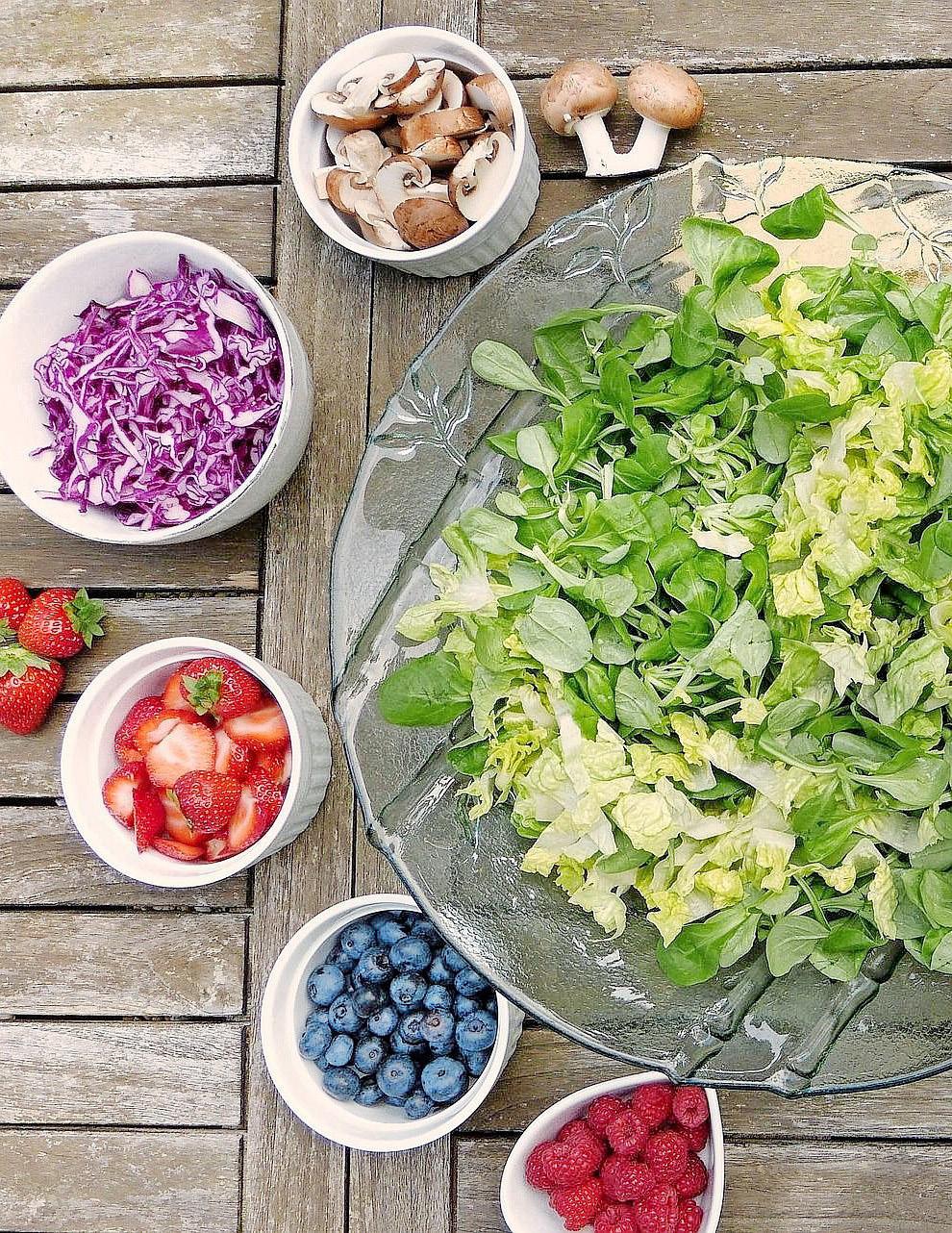
Patients on lifesaving machines: What happens when the power goes out?
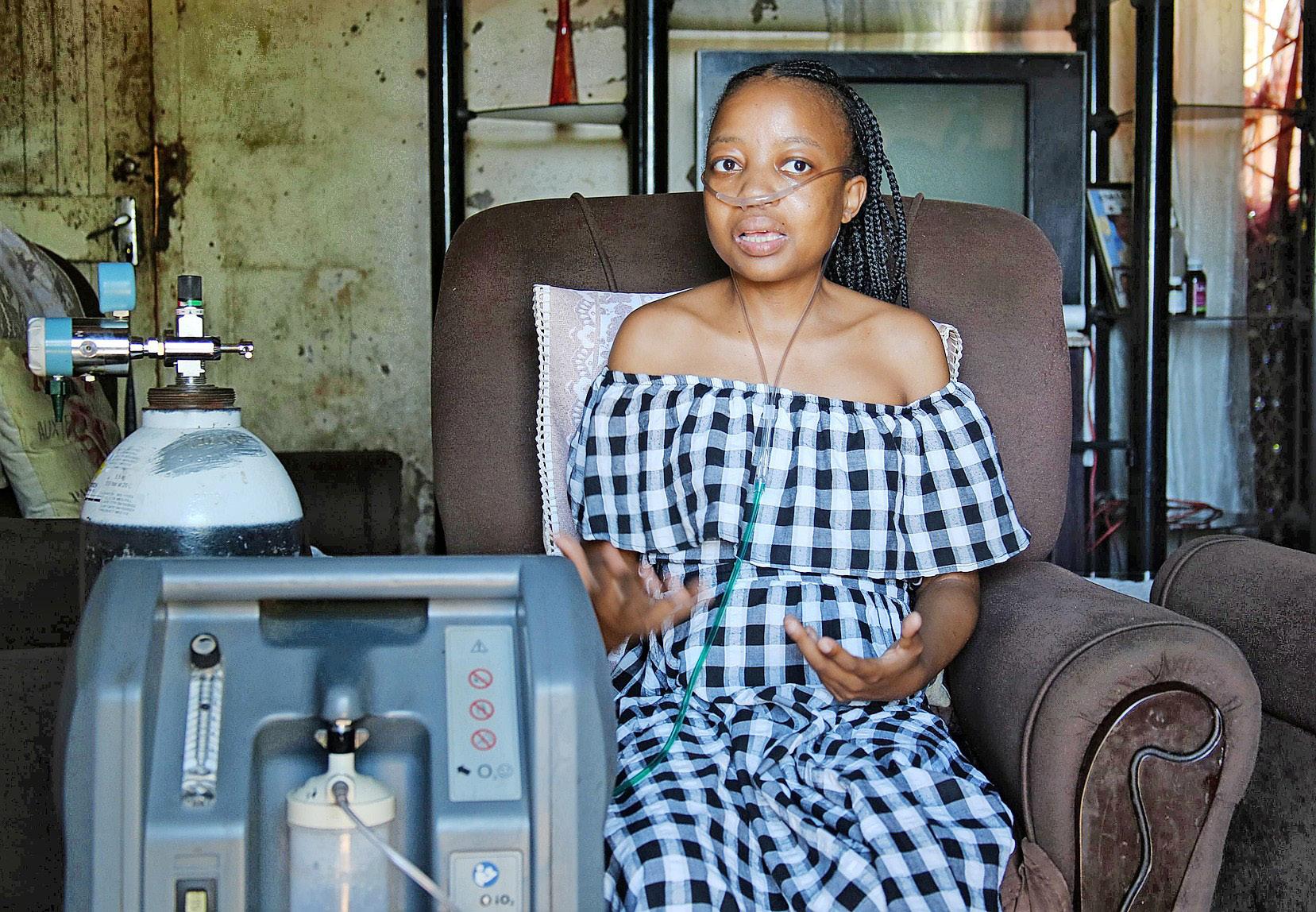
ACCORDING to a 2019 report by the South African Medical Journal, the healthcare system is under strain, mostly because of poor financial management, unequal resource allocation, a double burden of disease, and load shedding.
Statistics South Africa estimates that there are more than 3 000 state-run clinics and 420 state-run hospitals operating throughout the country.
Smaller healthcare facilities, especially primary healthcare clinics, are frequently left in the dark, even though commercial
facilities and secondary- and tertiary-level state hospitals appear to be well supplied with generator banks.
During a media briefing in September last year, Health Minister Dr Joe Phaahla said his department intended to introduce direct feed-in lines to certain hospitals in conjunction with municipalities
The national department of health has given Eskom a total of 213 hospitals to take into account for potential exclusion from load shedding as of October 2022.
In a statement, Phaahla
said “approximately 67% of these hospitals are supplied by municipalities, whereas around 33% of the recognised hospitals are supplied by Eskom”. Among the 213 hospitals, 76 have been exempted, “of which 50 are municipalities and 26 are directly supplied by Eskom,” Phaahla added.
While 76 public hospitals have already been formally spared from further load shedding, and there are plans to increase that number to 300, it appears that private healthcare facilities will have to handle the ongoing issue on their
Mtshali, 27,
KwaDukuza (Stanger), has lung failure and depends on an oxygen supply machine to breathe. She says load shedding threatens her life as she now needs to resort to gas refills which she cannot afford. |
ZAMA
from
TUMI PAKKIES African News Agency (ANA)
own. This is true even though they face many of the same difficulties that extended rolling blackouts present for public institutions.
Kobus Jonck, the general manager of infrastructure for Mediclinic Southern Africa, says the infrastructure already in place in all Mediclinics throughout South Africa contains “a minimum of two generators that may be bus-coupled to enable the nonessential generator to back up the important load in the event that the essential generator fails during a mains power failure. Critical life support systems that demand continuous power are connected to UPS systems in addition to the generators”.
Notwithstanding Eskom’s load shedding, Dr Caroline Corbett, president of the South African Society of Anaesthesiologists, said in a BizNews interview that rural areas frequently had power outages because of cable theft and sub station problems. As a result, major hospitals experienced patient overcrowding and poor health care.
Corbett used the example of a small child she anaesthetised for the surgical insertion and testing of a hearing device to illustrate how serious the problem has been.
The procedure was planned to take place between power failures, but at the most critical point, load shedding unexpectedly increased from stage 3 to stage 6, requiring the team to cancel the procedure, revive the child and reschedule.
The delicate testing apparatus had significant damage.
There are countless difficulties that both public and private hospitals must overcome. Dr Wimpie Odendaal, a renowned bariatric surgeon in the Western Cape, described to Business Tech how a total blackout at Netcare in Blouberg, Western Cape, had an impact on patients who needed access to life-saving medical care.
“Even with our four generators running continuously, we’d run for
three to five days, keeping patients alive on ventilators, and then it would stop functioning normally,” he said.
It is very possible for doctors working in the private sector to be unable to provide for their patients’ needs and to make a living. For a single deep rural district hospital, Madwaleni in the Eastern Cape, to run two generators, diesel expenses alone range from R1 million a year to several millions of rand for a sophisticated private urban hospital (excluding generator maintenance and repair).
Jonck says “solar energy on its own cannot supply the complete load of a hospital, and so cannot replace a dependency on electricity supplies”. Alternative renewable energy sources can be expensive.
André Nortjé, the national environmental sustainability manager at Netcare, is pleased that his organisation currently has the second-largest installed base of solar power systems in South Africa
among private and commercial businesses.
“Last year alone, our environmental sustainability projects provided additional yearly electricity savings of more than R21m, while also lowering Netcare’s dependence on fossil fuels and the national power system,” says Jacques du Plessis, managing director of Netcare’s hospital division.
The Department of Health predicts that solar energy will soon take precedence in places like operating theatres, intensive care units, and buildings with hi-tech and sophisticated machinery.

“Load shedding compels us that in future when we construct new facilities, we must revise our plans and costs to include new sources of energy over and above generators.
“In addition, we must ensure the installation of the dedicated feeder line to avoid the current exercise of reconfiguring the electricity networks,” Minister Phaahla said.
SMALLER healthcare facilities, especially primary healthcare clinics, are often left in the dark. | ANA PICS

THE POWER OF GOOD-M00D FOODS
Eating a balanced diet full of vegetables and nutrients can improve your sense of wellbeing and mood
Lutho Pasiya
NUTRITIONAL needs differ with gender and age.
A healthy diet for a man is different from a healthy diet for a woman.
With June being Men’s Health Month, Dr Sivuyile Madikana from Herbalife NAB Southern Africa, shares below six tips to support men’s brain’s optimal function and wellbeing through food.
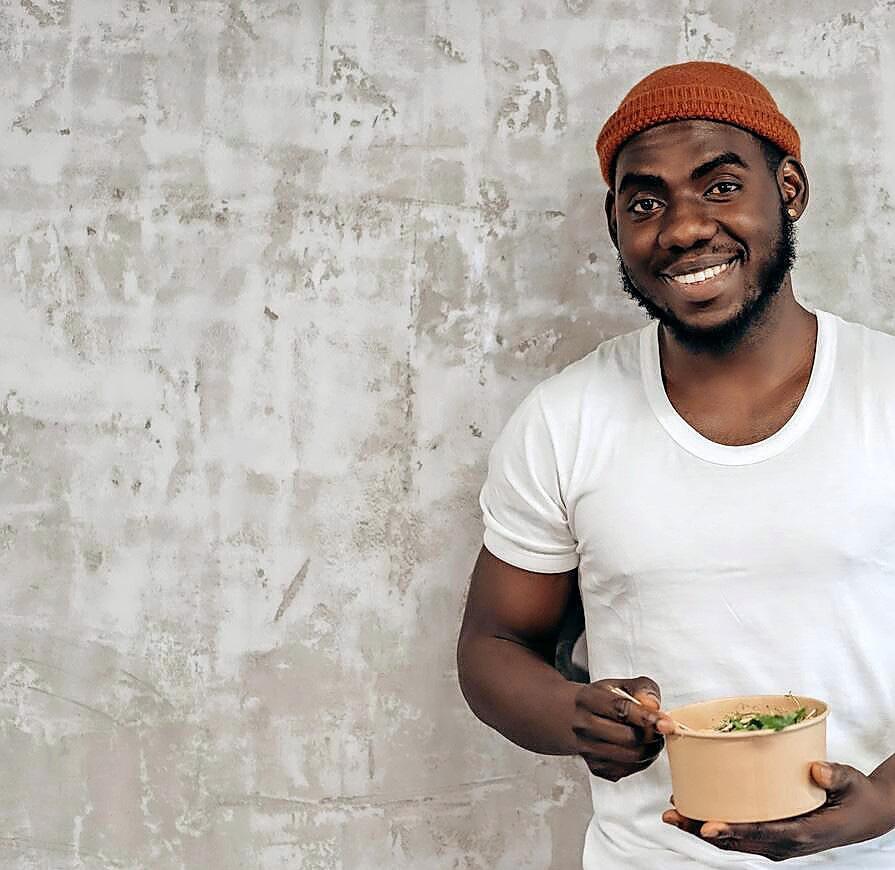
“It’s been noted in the literature that men often seek healthcare services less than women, leading to poor health outcomes and life expectancy, ” said Dr Madikana.
“When it comes to men’s mental healthcare, they are even less likely to seek psychological therapies, with only 36% of psychological referrals in some healthcare systems being for men.
“Some of the reasons include the stigma around mental health and a lack of education and awareness about the topic and its symptoms. The link between mental health and diet is a growing field being researched with evidence leading towards maintaining a good diet and good mental wellbeing,” Madikana added.
“It is no secret that eating a balanced diet full of vegetables and nutrients can improve your sense of wellbeing and mood.
“Diets that are high in sugars are said to not be good for the brain, they further affect the body’s regulation of insulin and promote inflammation and oxidative stress.
"There have been studies that compared what are considered traditional diets such as Mediterranean and Japanese diets with a Western diet. These showed a 25% – 35% lower risk of depression in those who maintained a traditional diet,” he explained. Here are six tips to get you going:
• Protein – our diet should be made up of at least 30% protein, which should be included in every meal we consume. Protein contains an amino acid that your brain uses to help regulate your mood.
• Drinking enough water – this will allow you to keep hydrated. Mild dehydration can affect your mood and ability to keep concentration levels up.
• Eating regularly – this can help maintain your blood sugar levels, keeping you energised and less tired.
• Include healthy fats in your diet
– omega-3 polyunsaturated fats can be found in walnuts, salmon, tuna, avocados, and many other Mediterranean food sources. They also lower bad cholesterol, while promoting the increase of “good” HDL cholesterol.
• Include more whole grains, fruits, and vegetables in your diet – they contain the vitamins and minerals your brain and body need to stay well.
• Look after your gut health –good bacteria not only influence what your gut digests and absorbs, but also affect the degree of
inflammation throughout the body, as well as your mood and energy level. Healthy food for your gut includes fruit, vegetables, beans, and probiotics.
IT IS no secret that eating a balanced diet full of vegetables and nutrients can improve your sense of well-being and mood.
|
MIKHAIL NILOV Pexels
Had a bad night’s sleep? Recover with these FIVE BRAIN FOODS
WE'VE always known that what we eat has an impact on our bodies, from lowering morbidity and mortality to lowering the risk of chronic disease.
Scientists continue to find evidence that what we eat has a significant impact on the health of our brains.
And as such consuming plenty of brain foods is important. Research shows that the best brain foods are the same ones that protect your heart.
Energy boosts are essential following a night of little sleep, whether to power through work, complete a successful gym session, or even run errands. While too much caffeine can cause jitteriness, some people think it’s the only way to stay alert.
Our diets can have a significant impact on the structure and health of our brains. A brain-boosting diet can help with both short-term and long-term brain function.
“Getting a good night’s sleep is vital for your health, and it is recommended to aim for between 7 and 9 hours each night,” said a representative for Bed Kingdom.
However, for many people, the recommended amount is not always doable for a variety of reasons. “In cases like that, it is critical to provide your body with the fuel it requires to go through the day, which can be accomplished by eating correctly.”
Thankfully, experts at Bed Kingdom have highlighted five brain foods that make you feel energised after a long night of sleep
 VUYILE MADWANTSI
VUYILE MADWANTSI
POLINA TANKILEVITCH
Pexels
deprivation.
Avocados
Avocados are high in healthy fats, fibre, vitamins and minerals, including potassium, which prevents fatigue by providing energy to the body. With 14 grams of fibre, this also promotes the formation of healthy bacteria, which is essential for your gut. It also goes well with toast for breakfast for an early morning energy boost or with a bagel for lunchtime replenishment.
The unsaturated fats in avocados may lower the risk of cognitive decline.
Dark chocolate
Dark chocolate flavanols improve memory, attention span, reaction time, and problem-solving skills by boosting blood flow to the brain. According to research, eating high-flavanol chocolate can enhance blood flow to the brain in young individuals.
If you frequently crave something sweet, dark chocolate is the ideal food for satisfying your sweet tooth while simultaneously increasing your alertness.
Dark chocolate has a lot of cacao, which is responsible for boosting your energy and sharpening your focus, so you can rely on it to keep you going all day. Not to mention that it is high in antioxidants such as magnesium, which has been linked to a variety

of health benefits such as fewer migraines and a lower risk of heart disease.
Chia seeds
Chia seeds, like dark chocolate, are rich in magnesium, which not only benefits your health but also combats extreme exhaustion and high-stress levels. Additionally, being hydrated makes you feel more awake, and chia seeds might help your body retain a lot of water. You can eat them by blending them into a smoothie, sprinkling them on yoghurt, or mixing them into a salad.
Sweet potatoes
Sweet potatoes are another source of magnesium, but they also contain a lot of vitamin C. This aids in the conversion of fat into energy, thereby fighting fatigue and keeping you alert.
Also, sweet potatoes are a nutritious carbohydrate and might be a fantastic alternative for lunch if you have a very long day and require long-lasting energy.
Sweet potatoes also include vitamin B6, which aids in child brain development and adult brain function. B6 also aids in the production of serotonin, a hormone that regulates mood and helps in stress management.
Oranges
Oranges are abundant in vitamin C, which boosts your energy, but they also contain a moderate amount of natural sugar, which is turned into glucose, the brain’s best source of fuel.
They provide enough sugar to give you energy rapidly, but not so much that it is overbearing and makes you sleepy. Even drinking orange juice instead of eating the fruit will improve your memory and mental performance for the day.

LISA FOTIOS Pexels SUZY HAZELWOOD Pexels
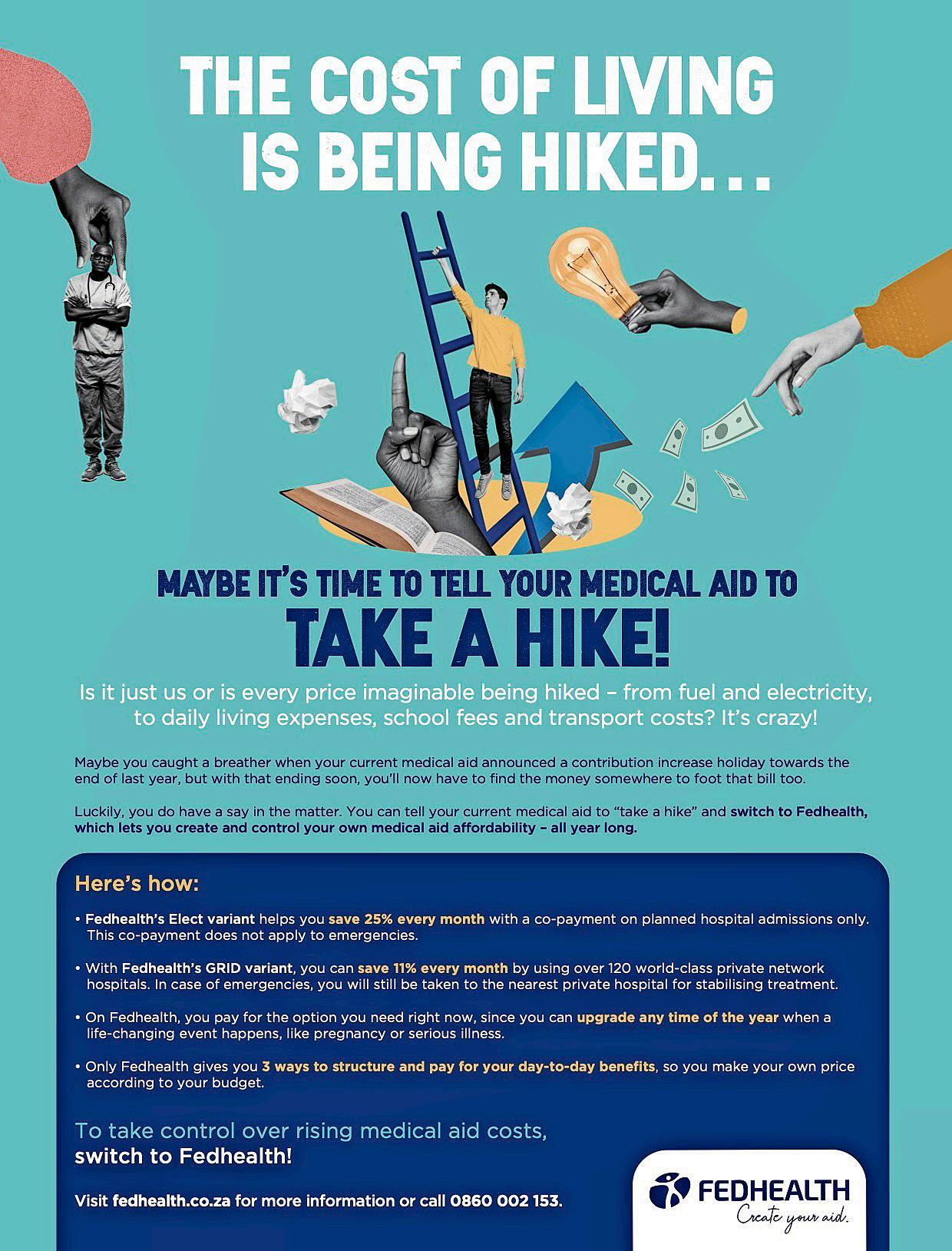
Budget speech and SA’s mental health patients
IN THE face of a mental health pandemic in South Africa, the share of the national public health budget allocated to mental health care is not only woefully inadequate, but could be better invested in prevention and care at the primary healthcare and community level.
The country has been hindered by significant gaps (financial investment) in initiating a sustained mental health response.
Responding to Finance Minister Enoch Godongwana’s 2023 Budget speech, the South African Society of Psychiatrists (Sasop) said it was concerned that mental healthcare continued to be underfunded while common mental health conditions, including anxiety and depression, were on the rise.
“Mental healthcare continues to be allocated only 5% of the national public health budget and since the health budget itself is declining in real terms, the mental health portion is declining in monetary terms,” said Sasop public sector national convenor, Dr Kagisho Maaroganye.
Even though one in three South Africans experiences a mental illness and 75% of them are unable to receive treatment, Maaroganye said mental healthcare professionals had noticed a sharp rise in common mental health issues “after Covid19 ran through the country and caused both documented and
Vuyile Madwantsi
untold misery for all citizens”.
As a result of this shift, common and curable mental health issues now account for more medical disability claims than physical illnesses and accidents.
However, the focus of the mental healthcare system is skewed towards more severe mental health conditions that affect less than 1% of the population, said Maaroganye.
The latest Mental State of the World report rated South Africans’ mental well-being as the lowest in the world, with the country’s “mental health quotient” steadily declining. South Africa also had the highest percentage (36%) of people experiencing emotional distress or struggling with mental health, an increase of 8% from 2020.
The combined effects of the Covid-19 pandemic, including social isolation, job losses, illness and threats to people’s physical health, and family member deaths, are to blame for the widespread emotional distress and mental illness.
Maaroganye said the continuous under-funding of mental healthcare hampers prevention and diagnosis of mental illness, and limited access to treatment, coupled
with shortages of mental health clinicians, a lack of experienced practitioners, insufficient resources to follow up and ensure compliance with treatment, all contribute to a persistent treatment gap.
“Insufficient attention to the mental health needs of expectant and new mothers, and of children and adolescents, suggests that the prevalence of mental illness is likely higher than indicated in surveys,” Maaroganye said.
It is important that we recognise that providing necessary mental health services requires greater resources, which is vital given existing low allocations, he said.
“South Africa’s mental healthcare budget, as a percentage of the overall health budget, is at the lower end of international recommendations for mental health spending, but it is also misdirected.
“Budget allocations are hospital-centric and reactive, with 86% of the budget allocated to inpatient care, and almost half that to specialised psychiatric hospitals.
“Instead of avoiding or offering early intervention and treatment for prevalent and frequent mental health illnesses like anxiety and depression before they deteriorate into more serious mental diseases, the focus is on treating the most severe conditions, which have a prevalence of less than 1%.”
 JOANNE ADELA Pexels
JOANNE ADELA Pexels
HUGGING and other forms of physical contact may increase the hormone oxytocin and have an impact on our endogenous opioid system, according to some studies.
 | COTTONBRO STUDIO Pexels
| COTTONBRO STUDIO Pexels
Healing with hugs
Benefits of hugging include safe bonding, stress reduction and emotional management
Lebohang Mosia
FOR many people, touch offers a variety of therapeutic effects. Humans have a physically innate sensitivity to touch, yet some people may react differently based on their surroundings and prior experiences.
The advantages of hugs for one’s body, mind, emotions and relationships aren’t entirely understood. However, a lot of progress has been made in the knowledge of how hugs and safe contact may make people feel more secure, connected and healthy.
According to Kim Bielak, an associate marriage and family therapist, physical contact is essential for humans at any age, but particularly during the early years of life.
The first and most well-known study on attachment, Harlow’s rhesus monkeys, showed that touch is a biologically-wired means for people to firmly bond. Children find it challenging to relate to carers without hugs.
According to Bielak, “Physical contact is essential to development and survival”. Hugs and other physical contact are important building blocks of familial ties. John Bowly’s attachment style hypothesis states that the bonds you form with your early caretakers may have an impact on all of your later relationships.
Hugs and other physical contact are among the most effective methods for people to connect, according to Bielak. “A sense of safety, trust and permission is always important, just like any sort of physical touch.”
Self-soothing
Regulating emotions may be difficult, particularly for those who have suffered trauma and other traumatic situations. According to Harlow’s research, touch is essential for fostering the capacity for self-soothing.
Hugs from a trustworthy person in particular might help
ACCORDING to Kim Bielak, an associate marriage and family therapist, physical contact is essential for humans at any age, but particularly during the early years of life. | HENK KRUGER African News Agency (ANA)
you identify and control your emotions. We are permanently hooked into the system, according to Bielak.
Blood pressure and stress levels
According to certified psychologist David Tzall, PsyD, other advantages of hugging include decreasing blood pressure. Tzall notes that they “bring down cortisol levels in the body and can make us relax.”
“Touch boosts the release of the love hormone oxytocin, which may alleviate discomfort and improve a sensation of well-being and connection,” said a researcher. In some situations, safe touch –from a robot or an animal – may serve as a signal of security and aid in reducing anxiety and dread.
Preventing loneliness
A serious depressive condition and social anxiety may make engaging with people more difficult. Hugging may be helpful for people who might feel lonely or socially disengaged if it makes you feel secure, at ease, and connected to others. According to Tzall, hugs from family members can make patients with these conditions feel connected, socially supported, and less alone.

Rekindling connections
Hugs provide a secure
connection that might strengthen sentiments of love for a companion. According to Tzall, touch may be crucial for couples in relationship counselling. Tzall notes that she talks to couples about touch and if they are embracing and snuggling.
Other advantages of embracing for couples who might need to rekindle their love include fostering desire through the dopamine release, increasing physical and emotional closeness, and improving trust.
The longer the embrace, the more attached a person feels, claims research titled: “The impact of length, arm crossing method, gender, and emotional closeness on hugging behaviour.” “Short embraces may work just as well – it doesn’t have to last for minutes and minutes.”
Generally speaking, several hugs could each have unique advantages. Long hugs are a great way to decrease blood pressure and reduce stress. Intimate relationships and families may benefit from body hugs. A hand over the shoulder can be a sign of a job well done. Hugging and safe human contact have been shown to have advantages in research. Hugs are great for your health, according to Tzall. Hugs may boost emotions of safety, security and connection in times of hardship. However, since not everyone enjoys being hugged, permission is crucial. To a stranger, Bielak advises, “ask whether a hug is okay first before simply declaring that you’re a hugger.”
To ensure that a hug is advantageous for everyone participating in the embrace, consent is essential.
While research on the advantages of ecotherapy for mental health is ongoing, it is fairly safe to claim that, while not being a miraculous treatment, nature does appear to aid in healing.
HEALTHY OPTIONS WHEN YOU’RE EATING OUT
EVERY year, we celebrate significant occasions like birthdays, promotions, baby showers, Christmas, and New Year’s –you get the gist – and the food is almost always the main attraction.

But it’s during moments like these when most people stray from eating healthily out of a sense of celebration, which for most is a slippery slope to re-engaging in poor eating habits.
And with today’s hectic
lifestyles, and load shedding, most of us end up grabbing a sandwich from the deli counter for lunch, ordering takeaways for dinner, or eating out at least once a week.
The focus on healthy living goes beyond just attaining hourglass figures; it’s about curbing the increase in lifestyle diseases such
as depression, hypertension, and obesity, to name just a few that threaten our life expectancy.
A healthy diet is an important cornerstone of good health, but that doesn’t mean it’s always easy. It protects you against many chronic non-communicable diseases (NCDs), such as heart disease, diabetes and cancer.
Eating a variety of foods and consuming less salt, sugar and saturated and industrially-produced
A HEALTHY diet is an important cornerstone of good health. | ASKAR ABAYEV Pexels
Vuyile Madwantsi
transfats is essential for a healthy diet.
A study by Discovery Vitality on nutrition and women’s health found that the fast food and restaurant industry in South Africa has grown by 10% year-on-year, according to the 2017 Vitality ObeCity Index, with nearly half of the adults dining out at restaurants and takeaway outlets on a regular basis.
Authored by Discovery Vitality dietician Terry Harris, the study found that even the portion sizes have gradually increased over the years, with servings in restaurants and takeaway outlets being double or even triple the size of what is appropriate for one person
“Since restaurant food is much more likely to be high in calories, bad fats, and refined sugar than wholesome home-cooked food, the effects of this growth are frequently seen in our waistlines,” wrote Harris.
Meals away from home make it harder to control ingredients, calories and portions. This can be particularly challenging for people who are actively trying to avoid developing NCDs, which are largely influenced by our lifestyle choices.
The following tips will help you enjoy eating out without abandoning your efforts to eat well:
Manage your portions when eating out. Keep them small. Generally speaking, portions at fast food outlets and restaurants are larger than those you would typically eat at home. Request half portions, split a huge dinner with a companion, or take some of your meal home in a takeaway container.
Ask how food is prepared. Order foods that have been steamed, baked, broiled, grilled or roasted.
Avoid up-sizing your meal. It might seem like a good deal, but it’s not, health and weightwise.
Eat slowly. It takes about 20 minutes for your brain to get the message from your stomach that
you’re no longer hungry. Fast eaters are often overeaters, while slow eaters tend to eat less but are still satisfied.
Ask for veggies with your meal. Order sides of leafy green salad or cooked vegetables. Substitute your fries with vegetables. Whole foods are a great way to load up on fibre. Your digestive system will thank you!

Get the sauce on the side. You increase the fat and sodium in your food by using sauces, condiments, dressings and spreads. To add flavour, use a small amount
after asking for these on the side.
With the above in mind, you can still maintain your health when dining out – you don’t have to quit eating out altogether.
For additional information on how to simplify your diet, the Dash diet for South Africans recently launched the Cooking from the Heart 5 cookbook, which is available to the public free.
The cookbook serves as a valuable resource for people to learn more about the kinds of food to avoid, what to include, and how to prepare tasty meals that are easy to follow and budget-friendly.
A HEALTHY lifestyle is a combination of what and how much you eat. |
CATS COMING Pexels













 VUYILE MADWANTSI
VUYILE MADWANTSI



 JOANNE ADELA Pexels
JOANNE ADELA Pexels
 | COTTONBRO STUDIO Pexels
| COTTONBRO STUDIO Pexels












